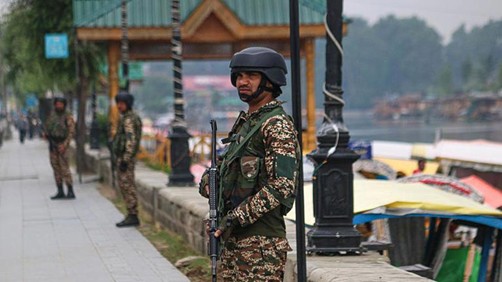Pakistan suffered a significant blow at the Organization of Islamic Conference (OIC) Parliamentary Union Meeting in Jakarta, Indonesia when it tried to pass a resolution that would see the OIC take a tough stand against India over the issue of Kashmir. Three Muslim countries Indonesia, Egypt, and Bahrain voted against the resolution. New Delhi has hailed it as a significant victory while Islamabad licked its wounds. Egypt and Indonesia in particular have enjoyed renewed diplomatic ties with India. The vote against the resolution in the OIC follows recent hostilities between India and Pakistan over the Pahalgam attack in Kashmir that saw the deaths of 26 civilians.
You will remember that during India’s Republic Day celebrations this year, the President of Indonesia was the chief guest and he canceled his program in Pakistan. Earlier also, when an OIC meeting was held in New York after the terrorist attack in Pahalgam, even during that time Oman had tried to stop the use of harsh words on Kashmir. After that, India strongly criticized Pakistan. India had said that Islamabad misled the OIC group and issued a one-sided statement on the terrorist attacks in Kashmir. India had insisted that Pakistan gave wrong information to the OIC. This time too, Pakistan wanted to corner India on the Kashmir issue. But Indonesia, Egypt and Bahrain foiled its move. These countries supported India and Pakistan had to face humiliation on the international stage.
Pakistan may find itself in an isolated position. If the Pakistani government is indeed responsible for the militant attack in Pahalgam which is apparently the case then Islamabad and Pakistani intelligence has indeed been caught out. Pakistan cannot afford an outright war with India so it relies on proxy militant groups based from inside Kashmir to carry out attacks. The attacks by these have been on the increase since current Indian Prime Minister Narendra Modhi took power. Cairo, Jakarta and Manama for their part are taking a more pragmatic approach. But it has to be asked at what cost? Is the current regime in New Delhi really worth having close relations too? The Egyptian and Indonesian governments have long since had close historic ties with India due to it being part of the non-aligned movement.
Bahrain may just want to be neutral and not be drawn into a protracted feud.
As part of their retaliatory measures, both India and Pakistan shut down the Attari-Wagah border, the only land crossing between the two countries. The border, which is heavily guarded and requires special permits to cross, has long been used by people visiting family members, attending weddings or reconnecting with loved ones across the border. Both countries initially gave their citizens nearly a week to return, but the deadline was later extended. For days, emotional scenes unfolded at the border, as families were separated, with some people staying behind. After the 7 May strikes, India also announced that it would be closing entry from its side to the Kartarpur Sahib Corridor, which allows Indian pilgrims to visit one of Sikhism’s holiest shrines in Pakistan without a visa.
According to India’s Foreign Secretary Vikram Misri the border will be closed until further notice. India and Pakistan both have a longstanding rivalry that has divided their respective populations since partition and independence in 1947. However, the recent events in Pahalgam have seen these nuclear armed rivals engage first in a skirmish of each other’s’ territory and then an uneasy truce. At the source of this is the dispute over the future of the territory of Kashmir. Once desiring to fully join Pakistan in 1947 the disputed territory now wants be its own independent state. This is a reasonable idea. As an independent country it could serve as a buffer between India and Pakistan. For now, a frosty peace is settling over the sub-continent from the Himalayas to the Indus Valley.
Observers will have to be a wait and see to see how this dispute evolves.
Article written by:
Yacoob Cassim
Journalist at Radio Al Ansaar






